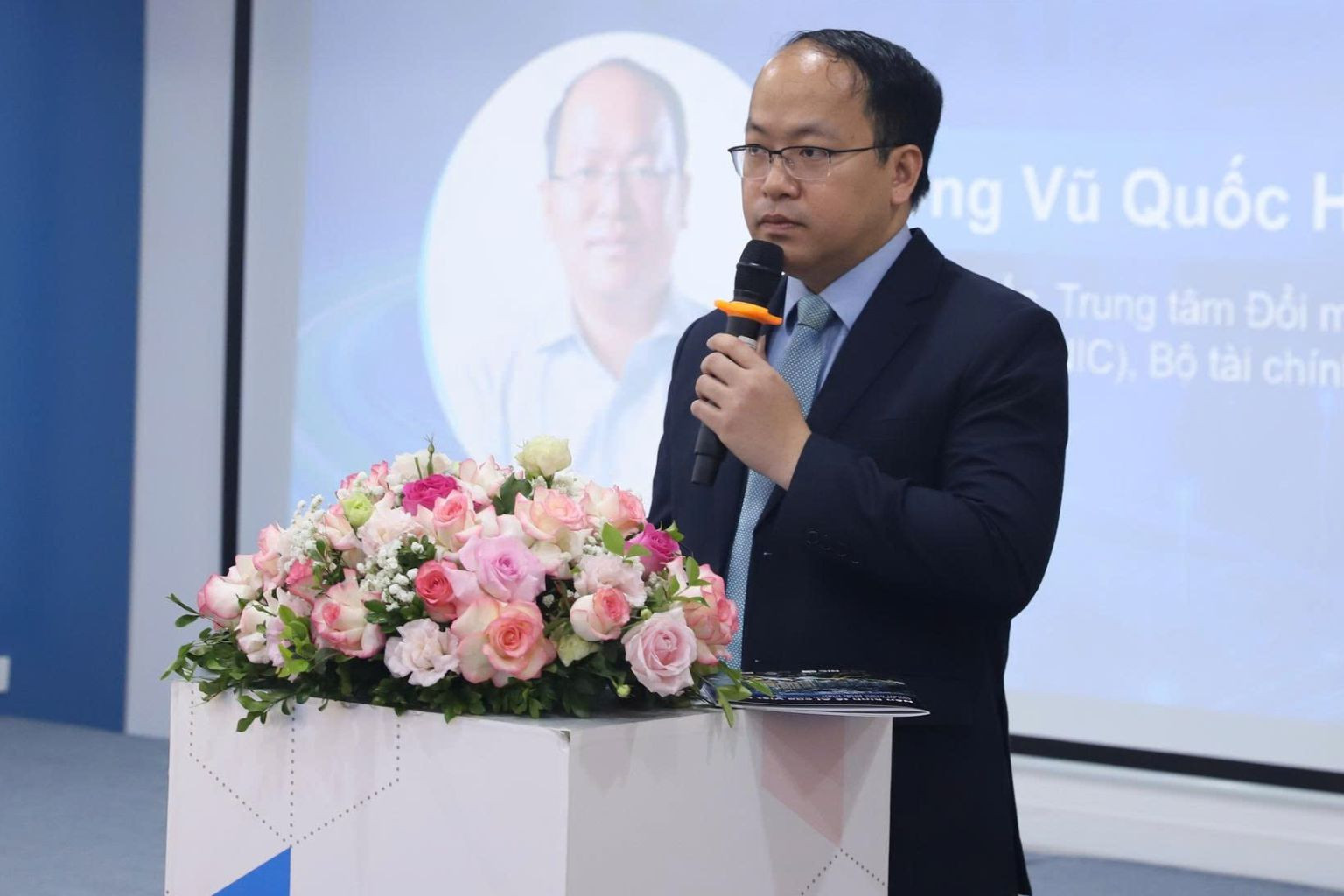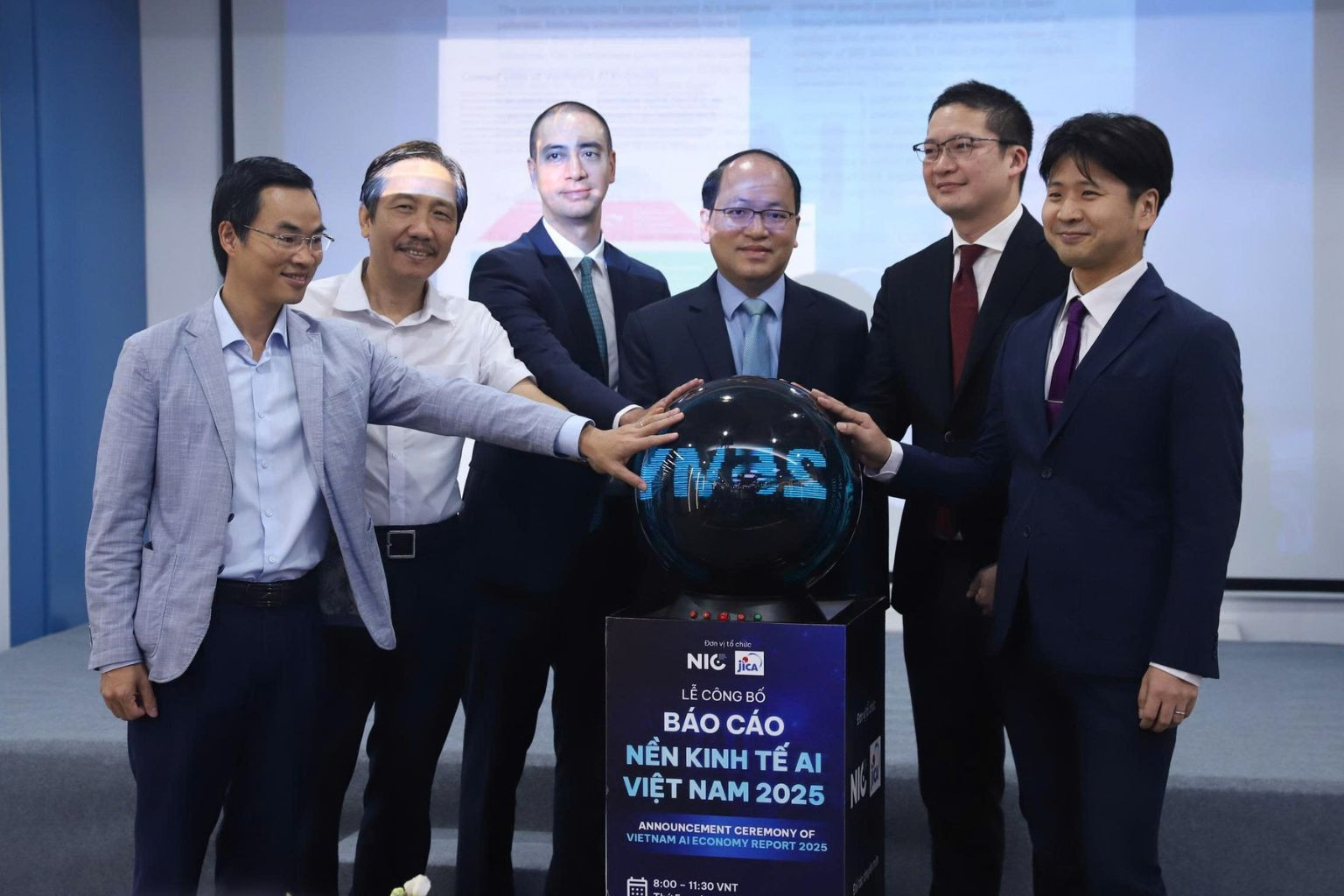Artificial intelligence (AI) could contribute up to $5 trillion to the global economy by 2030, and Vietnam must seize this historic opportunity to assert a firm position in the field, emphasized Vu Quoc Huy, Director of the National Innovation Center (NIC).

On June 12, the NIC under the Ministry of Planning and Investment, in collaboration with Japan International Cooperation Agency (JICA) and Boston Consulting Group (BCG), hosted the launch of the report “Vietnam’s AI Economy 2025.”
The event served as a platform for networking, solution sharing, and advancing partnerships to help build an innovation-driven ecosystem, develop a high-quality workforce, and accelerate Vietnam’s digital transformation.
This report marks the first comprehensive assessment of Vietnam’s AI landscape - highlighting its potential, trends, and strategic development directions under the Politburo's Resolution 57-NQ/TW.
About 100 domestic and international delegates attended the event, including representatives from government agencies, research institutions, universities, technology companies, startups, and AI experts.
AI to add $5 trillion to global GDP by 2030
Speaking at the event, Vu Quoc Huy stressed that Vietnam is entering a critical transformation phase as the Fourth Industrial Revolution reshapes global value chains, with AI at the heart of this transition.
According to Huy, AI has the potential to contribute $5 trillion to the global economy by 2030. He urged Vietnam to take full advantage of this historic moment to establish a strong position in AI.
To this end, Vietnam’s Party and government have enacted key policies - Resolutions 57, 68, and 193 - to build a legal and institutional framework that supports innovation, scientific advancement, and digital transformation.
Under the direction of the Ministry of Planning and Investment, NIC partnered with JICA to develop “Vietnam’s AI Economy 2025” - the first national report offering a comprehensive outlook on Vietnam’s AI landscape, including its potential, opportunities, and development pathways.

NIC will continue working with JICA’s DXLab to launch an AI startup acceleration program, helping startups access markets, enhance capabilities, and attract investment.
Vu Quoc Huy expressed hope to foster a dynamic, youth-driven innovation ecosystem that positions Vietnam as a leading center for AI research and application in the region and beyond.
Partnering with Vietnam to thrive in the AI era
JICA Vietnam representative Kubo Yoshitomo shared that JICA is closely partnering with the Vietnamese government to promote sustainable growth in the digital age.
Through the JICA DXLab initiative, JICA supports Vietnam in leveraging AI and digital technology effectively, while working with NIC and BCG to produce a strategic roadmap that outlines priority areas and specific policy recommendations for the government, businesses, and academia. Some initiatives are already underway, such as the Vietnam-Japan Talent Connection program in innovation.
Arnaud Ginolin, Managing Director of BCG Vietnam, affirmed that the report provides a practical roadmap for Vietnam to drive AI-powered digital transformation. If harnessed correctly, he said, AI could contribute $120 billion to Vietnam’s economy by 2040.
To reach this goal, Vietnam must develop a robust AI ecosystem with aligned policies, infrastructure, businesses, and skilled human resources.
Though still in the early stages, Vietnam is rapidly developing and, with support from both public and private sectors - domestic and international - has favorable conditions to break through and lead in the AI era.
Ha Thuong